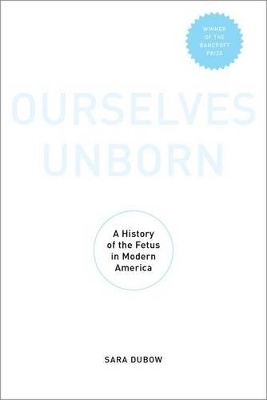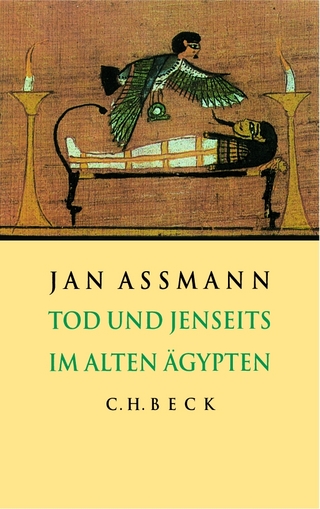
Ourselves Unborn
A History of the Fetus in Modern America
Seiten
2017
Oxford University Press Inc (Verlag)
978-0-19-061071-5 (ISBN)
Oxford University Press Inc (Verlag)
978-0-19-061071-5 (ISBN)
Ourselves Unborn examines how, from the nineteenth century through the early twenty-first century, Americans with disparate experiences, beliefs, values, and interests have participated in arguments about the legal identity, physiological condition, social value, cultural significance, and political status of the human fetus.
During the past several decades, the fetus has been diversely represented in political debates, medical textbooks and journals, personal memoirs and autobiographies, museum exhibits and mass media, and civil and criminal law. Ourselves Unborn argues that the meanings people attribute to the fetus are not based simply on biological fact or theological truth, but are in fact strongly influenced by competing definitions of personhood and identity, beliefs about knowledge and authority, and assumptions about gender roles and sexuality. In addition, these meanings can be shaped by dramatic historical change: over the course of the twentieth century, medical and technological changes made fetal development more comprehensible, while political and social changes made the fetus a subject of public controversy. Moreover, since the late nineteenth century, questions about how fetal life develops and should be valued have frequently intersected with debates about the authority of science and religion, and the relationship between the individual and society. In examining the contested history of fetal meanings, Sara Dubow brings a fresh perspective to these vital debates.
During the past several decades, the fetus has been diversely represented in political debates, medical textbooks and journals, personal memoirs and autobiographies, museum exhibits and mass media, and civil and criminal law. Ourselves Unborn argues that the meanings people attribute to the fetus are not based simply on biological fact or theological truth, but are in fact strongly influenced by competing definitions of personhood and identity, beliefs about knowledge and authority, and assumptions about gender roles and sexuality. In addition, these meanings can be shaped by dramatic historical change: over the course of the twentieth century, medical and technological changes made fetal development more comprehensible, while political and social changes made the fetus a subject of public controversy. Moreover, since the late nineteenth century, questions about how fetal life develops and should be valued have frequently intersected with debates about the authority of science and religion, and the relationship between the individual and society. In examining the contested history of fetal meanings, Sara Dubow brings a fresh perspective to these vital debates.
Sara Dubow is Assistant Professor of History at Williams College.
Introduction: Fetal Stories
Ch 1: Discovering Fetal Life, 1870s-1920s
Ch 2: Interpreting Fetal Bodies, 1930s-1970s
Ch 3: Defining Fetal Personhood, 1973-1976
Ch 4: Defending Fetal Rights: 1970s-1990s
Ch 5: Debating Fetal Pain, 1984-2007
Epilogue: Fetal Meanings
Notes
Bibliography
| Erscheinungsdatum | 31.12.2016 |
|---|---|
| Zusatzinfo | 15 illus. |
| Verlagsort | New York |
| Sprache | englisch |
| Maße | 155 x 231 mm |
| Gewicht | 454 g |
| Themenwelt | Geisteswissenschaften ► Geschichte ► Regional- / Ländergeschichte |
| Geschichte ► Teilgebiete der Geschichte ► Kulturgeschichte | |
| Medizin / Pharmazie ► Gesundheitswesen | |
| Studium ► Querschnittsbereiche ► Geschichte / Ethik der Medizin | |
| Sozialwissenschaften ► Soziologie ► Gender Studies | |
| ISBN-10 | 0-19-061071-9 / 0190610719 |
| ISBN-13 | 978-0-19-061071-5 / 9780190610715 |
| Zustand | Neuware |
| Haben Sie eine Frage zum Produkt? |
Mehr entdecken
aus dem Bereich
aus dem Bereich
der stille Abschied vom bäuerlichen Leben in Deutschland
Buch | Hardcover (2023)
C.H.Beck (Verlag)
23,00 €


